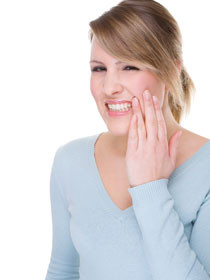Brushing your teeth seems like a fairly simple task right? After all, you’ve been doing it every day since you were a child. Well, turns out most people aren’t very good at brushing their teeth.
As with any habit, teeth brushing can become tedious. You can go through the motions without thinking about whether or not you’re using the proper technique. But improper brushing can lead to bigger problems, such as cavities, enamel erosion, and gum disease. So find what you’re doing wrong and learn how to correct those bad brushing habits.
Not Brushing Long Enough
This is probably the single most frequent mistake people make while brushing. Don’t rush your brushing just because you’re late for work or ready to collapse into bed. Proper brushing takes about two or three minutes, but few people ever make it to that. Try using a stopwatch or an electric toothbrush with a timer. Do whatever it takes to make sure you’re brushing long enough. All this brushing is necessary to get rid of food debris and bacteria in your mouth to keep it clean and healthy.
Brushing Too Hard
Brushing harder doesn’t make your teeth cleaner. In fact, you could be doing more harm. Aggressive brushing can erode tooth enamel and wear away gum tissue, leading to receding gums. Next time use gentle pressure, holding the toothbrush at a 45-degree angle to your teeth, with the bristles pointing to your gums. This is the best way to remove plaque by brushing.
Keeping Your Toothbrush Too Long
Toothbrushes can wear down quickly, so it’s recommended you should get a new one every few months. Check your toothbrush regularly to make sure the bristles are flexible and not worn out. As toothbrush bristles flare, their ability to remove plaque decreases considerably. There are even toothbrushes that have color indicators on them, letting you know when it’s time to replace your brush.
Using the Wrong Toothbrush
Make sure you choose a toothbrush that fits your mouth. If you’re straining to open wide enough to let the toothbrush in, it’s probably too big. The handle should feel comfortable as if you’re holding a fork when you eat. The better your toothbrush fits your mouth and hand, the more likely you’ll use it correctly.
As for the bristles, they should be soft or extra soft to minimize any damage that may come from brushing too hard. Hard bristles increase surface abrasion which causes wear and damage to your teeth when brushing.
You can also try investing in an electric toothbrush. Studies show that electric toothbrushes do a better job at cleaning your teeth and remove more plaque than manual brushing.
Not Rinsing Your Toothbrush
A toothbrush that isn’t rinsed can harbor harmful germs and bacteria (bacteria that you’ll be putting back into your mouth next time you brush). Rinse and dry your toothbrush after you brush to remove food particles, and rid the moist environment that bacteria love. You can also use soap and water or antibacterial rinses for a better clean. Remember, a cleaner toothbrush means a cleaner mouth.


